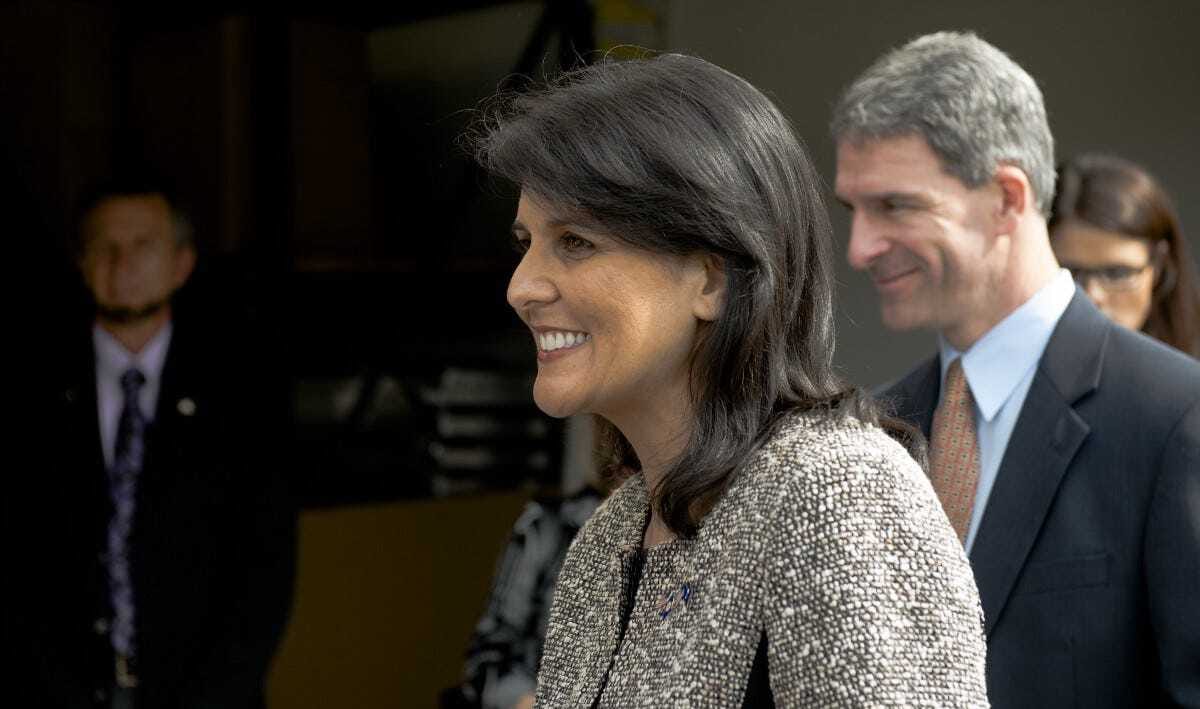
On Saturday, Politico published my profile of South Carolina Governor Nikki Haley, who rose to power in her state on an anti-establishment wave, but has now been chosen by the Republican mainstream to represent the future of her party. This, despite the fact that Haley herself says she hasn’t changed much since her election in 2010 (her shift on the Confederate flag being a noteworthy exception). On Wednesday, just as we were wrapping up the edit on the story, Haley decided to endorse Marco Rubio. Just a day before, she had expressed doubt that she would endorse anybody. It’s hard to say whether her backing changed Rubio’s fate in South Carolina — he narrowly edged out Ted Cruz to finish second. Donald Trump not only won in South Carolina, but also took all 50 of its delegates.
The endorsement did, however, change my story quite a bit, and meant there was no place for the following anecdote about her state of the state address in January. It’s an example of the two sides of Nikki Haley, who calls for calm and thoughtful debate, and then, minutes later, makes a calculated move to put lawmakers who disagree with her on blast:
Eight days after she addressed the nation, Nikki Haley gave another speech to a much smaller audience. During her annual state of the state address inside the ornate house chamber in Columbia, South Carolina’s Republican governor somberly began by noting the shooting deaths of nine black churchgoers in Charleston last year. She repeated an idea that she brought up the week before during her Republican response to the State of the Union address: that the angriest voices aren’t always the best ones. “Disagreement does not have to mean division,” she said. “Honest policy differences do not need to morph into personal dislike, distrust, and disillusion.”
Twenty-five minutes in, though, she went off-script. For years, lawmakers had largely ignored her proposals for ethics reform. “The Senate has refused to vote on either, repeatedly,” she said before pausing for a moment, looking around the chamber for five seconds, smirking slightly, but not speaking. “Let’s break this down a little bit,” she continued, breaking from sing-songy cadence that comes from reading a TelePrompTer. She then told the crowd that the state was watching, then asked senators who supported income disclosures and independent investigations to stand. A few bewildered whoas rose from the crowd, some senators rose to their feet, and the TV cameras panned across the chamber. “Ladies and gentlemen, we finally got to see what that vote might look like,” Haley said, followed by nervous laughter and applause.
After the speech, Democratic State Rep. Justin Bamberg told South Carolina’s ETV that the governor’s stunt showed that she really wasn’t interested in getting ethics reform passed. “If you are looking maybe to get a vice presidential nomination,” he said, “what you do is what she did.”
Haley, outside her office, shrugged. “Now I have video, now I have pictures, and now I have the ability to go back to their districts,” she told me. “It’s what I do.”
